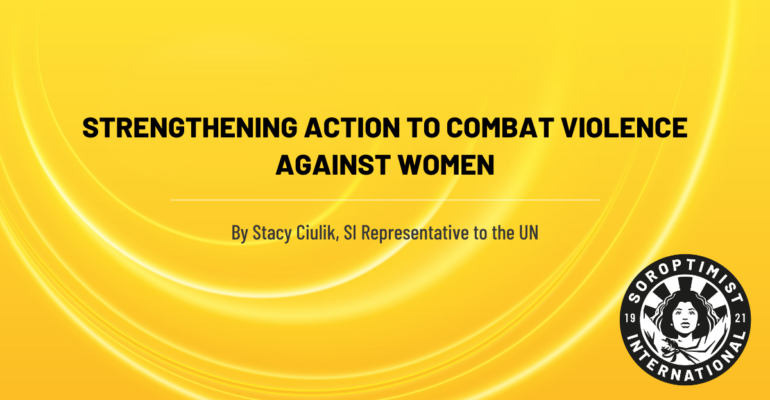Blog of Stacy Ciulik, SI Representative to the United Nations in Geneva.
On 2 October 2024, a well-attended side event titled “Strengthening Action Against Violence Against Women and Girls through Cooperation” was held during the 57th session of the Human Rights Council (HRC57). Co-organised by the Permanent Delegation of the Council of Europe to the United Nations Office at Geneva, the Permanent Representation of the Kingdom of the Netherlands to the UN, WTO in Geneva, and the Permanent Mission of Austria to the United Nations in Geneva, the event was co-sponsored by the Missions of Canada, India, Mexico, Kazakhstan, and Mozambique.

Global Perspectives on Combating Violence Against Women and Girls
HE Tanja Gonggrijp, permanent representative to the EU in Strasbourg and chair of the Istanbul Convention, opened the event. She recounted the recent murder of a 38-year-old mother, killed by her intimate partner in front of her young child, urging the attendees to reflect on the urgency of protecting women’s rights. Her message was clear: the international community must unite to uphold women’s rights and implement international agreements effectively.
The panelists offered valuable insights into ongoing challenges and successes. Ms. Maria-Andriani Kostopoulou, from the Council of Europe Group of Experts on Action against Violence against Women and Domestic Violence (GREVIO), shared the progress made over the past decade since the Istanbul Convention came into force. She emphasised the importance of the convention in transforming national legal frameworks to better protect women from violence, but also stressed the need for continued vigilance and cooperation.
Mr. Barragues, Deputy Chief of the United Nations Population Fund (UNFPA), discussed the 6,800 recommendations made alone during the recent Universal Periodic Review (UPR) cycle, which aim to ensure a gender-responsive, human-rights-based approach to addressing violence against women. He highlighted the importance of shadow reports, advocacy, and civil society mobilisation to effectively engage with mechanisms such as the Convention on the Elimination of all forms of Discrimination Against Women (CEDAW) and the UPR.
Contributions from other experts reinforced the global scope of the issue. Adriana Quinones, Head of Human Rights and Development at UN Women, highlighted the need for a monitoring system for femicide, referencing the success of Costa Rica in establishing such a system in 2007. Since then, 16 countries have followed suit. She advocated for a common understanding of the role of the state in protecting survivors and holding perpetrators accountable, underscoring that cooperation across borders is essential to achieve meaningful progress.
The final reflections from the panel were powerful and poignant. The event concluded with a call for a stronger civil society, improved accountability mechanisms, and the amplification of national and local voices. As Adriana Quinones pointed out, the success of any initiative depends not only on global frameworks but also on how these frameworks are implemented at the national level. A significant focus should be placed on engaging local communities and survivors in the conversation, ensuring that their experiences inform policy decisions.
Concluding thoughts
As we mark the 10th anniversary of the Istanbul Convention and reflect on the decades that have passed since the adoption of the Belém Do Pará Convention and the Maputo Protocol, it is clear that violence against women remains one of the most widespread violations of human rights. However, events like this serve as crucial reminders of the power of cooperation and the need for continued action. The collective efforts of governments, civil society, and international organisations will be essential in shaping a future where no woman or girl lives in fear of violence.

